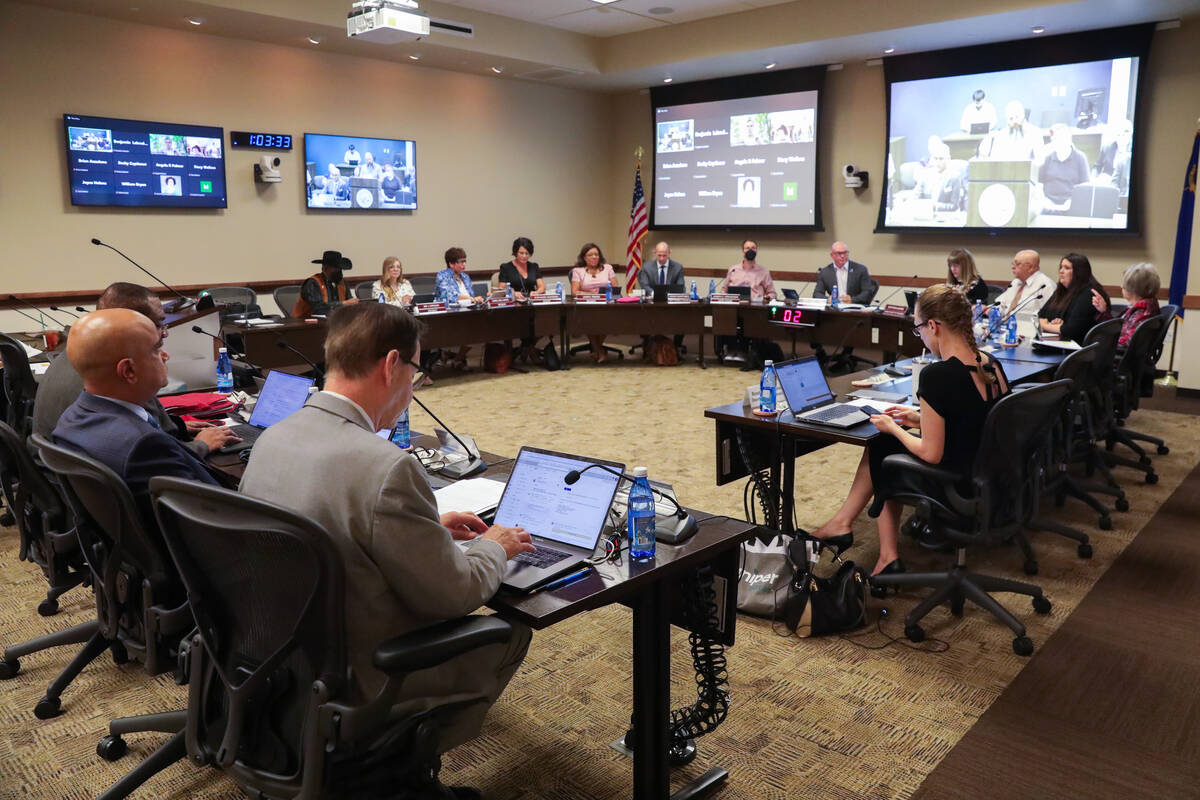Review-Journal endorsement: Question 1

“With great power comes great responsibility” Uncle Ben tells Peter Parker, better known as Spider-Man.
But when that power isn’t used responsibly, it’s appropriate to remove it. That’s analogous to the decision facing voters with Question 1. It would remove the Board of Regents from the Nevada Constitution. The Legislature would then have more authority over the Nevada System of Higher Education.
The state constitution directs the Legislature to establish a state university that’s “controlled by a Board of Regents whose duties shall be prescribed by law.” The Legislature has done that. The state helps fund higher education; the Board of Regents governs it. It’s similar to how the state provides local school funding, but a Board of Trustees runs the Clark County School District.
But there’s one big difference. The school board isn’t in the state constitution. One might think that’s little more than semantics. But it’s not. Almost 80 years ago, the Legislature sought to establish an advisory committee to the regents. The Nevada Supreme Court didn’t allow it. “It was the intention of the framers of the constitution to vest exclusive executive and administrative control of the university in a board of regents to be elected by the people,” the court ruled in King v. Board of Regents.
The Board of Regents has used that decision to claim a special level of authority outside of the traditional three branches of government. That’s an affront to accountability.
In a 1984 Nevada Supreme Court case, Board of Regents v. Oakley, the majority wrote, the Board of Regents “contend that the unique constitutional status of the Board gives it virtual autonomy.” But the court rejected that expansive interpretation. The justices held that the King decision “does not stand for the proposition that the Board of Regents is free from all legislative regulation.”
Yet, the university system hasn’t always been forthcoming with the Legislature. In 2016, Chancellor Dan Klaich resigned after the Review-Journal reported on emails higher education officials sent from 2011-2012. Those messages appeared to show that university higher-ups misled legislators as they worked on a new funding formula.
“Things have improved in recent years,” Assemblywoman Heidi Kasama testified last session on the Senate joint resolution that put Question 1 on the ballot. “Nonetheless, this general governance structure needs to change.”
She continued, “There is a clear divide between the legislators’ constitutional power to fund higher education and the board’s constitutional power to direct how those funds are spent. It gives the board virtually unparalleled power within state government to control and manage higher education spending without the same level of legislative oversight typically applied to other executive branch agencies.”
Nevada’s system of higher education should be subject to the same level of scrutiny as other state-funded agencies. Voters should approve Question 1.